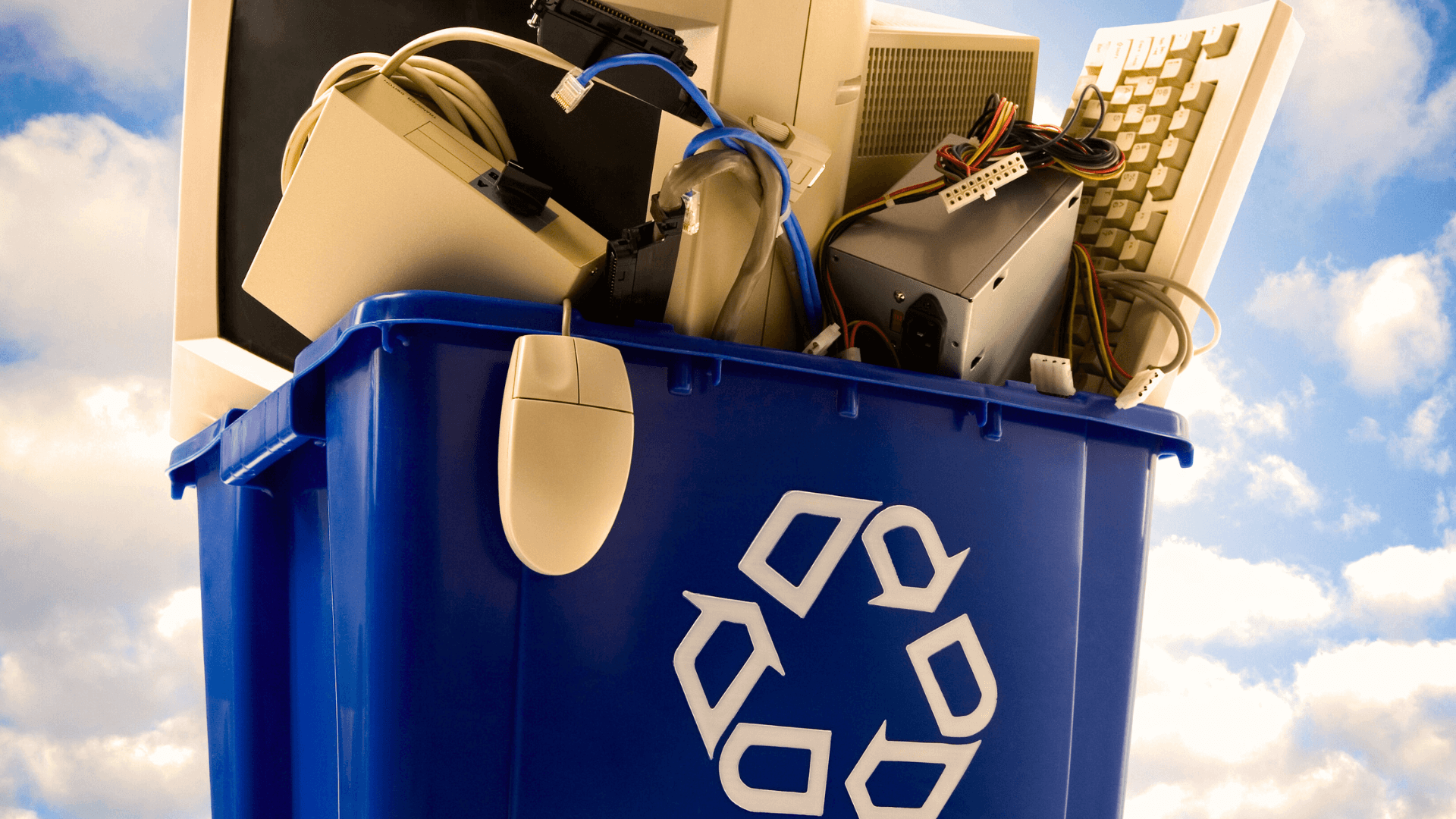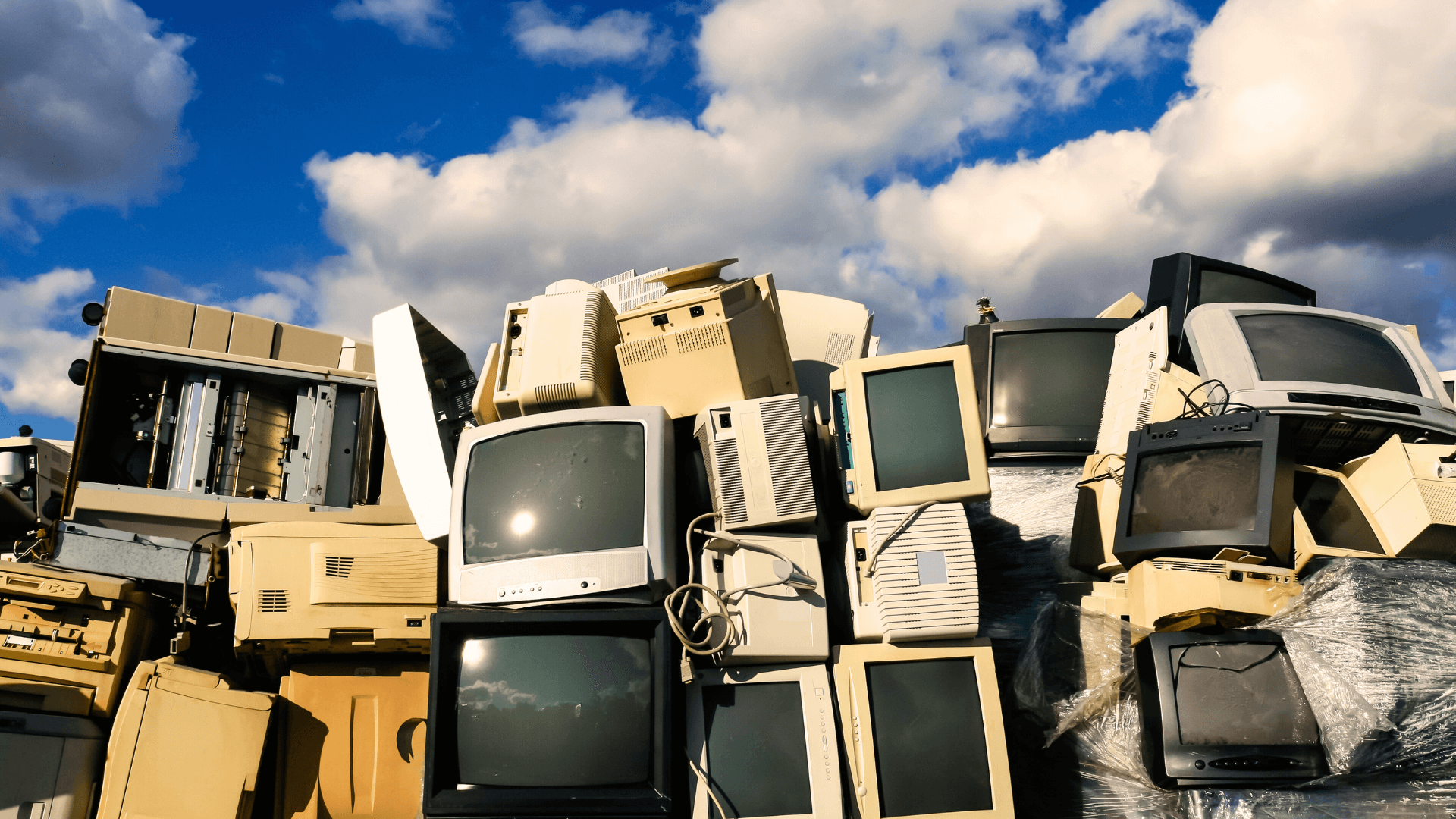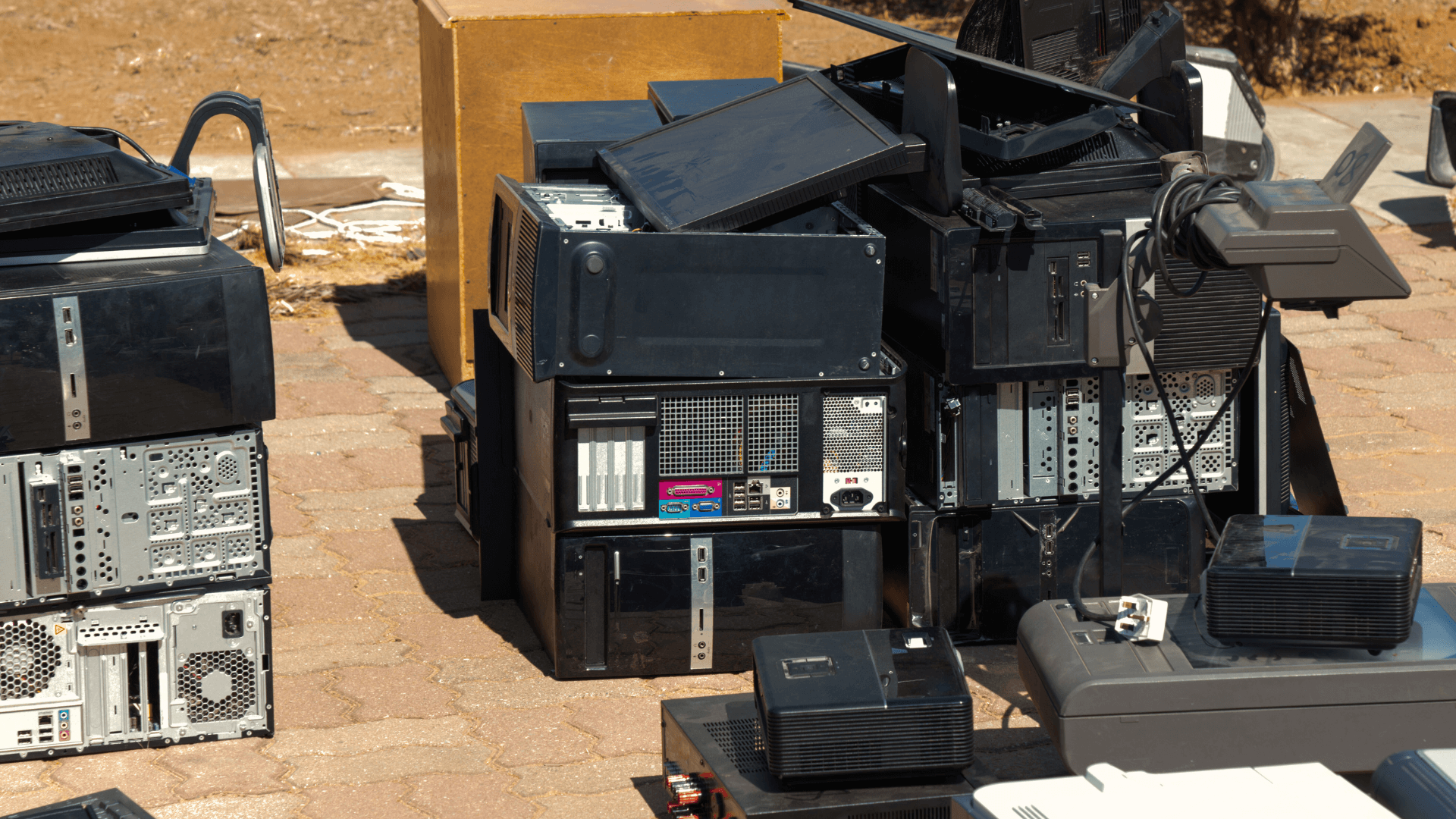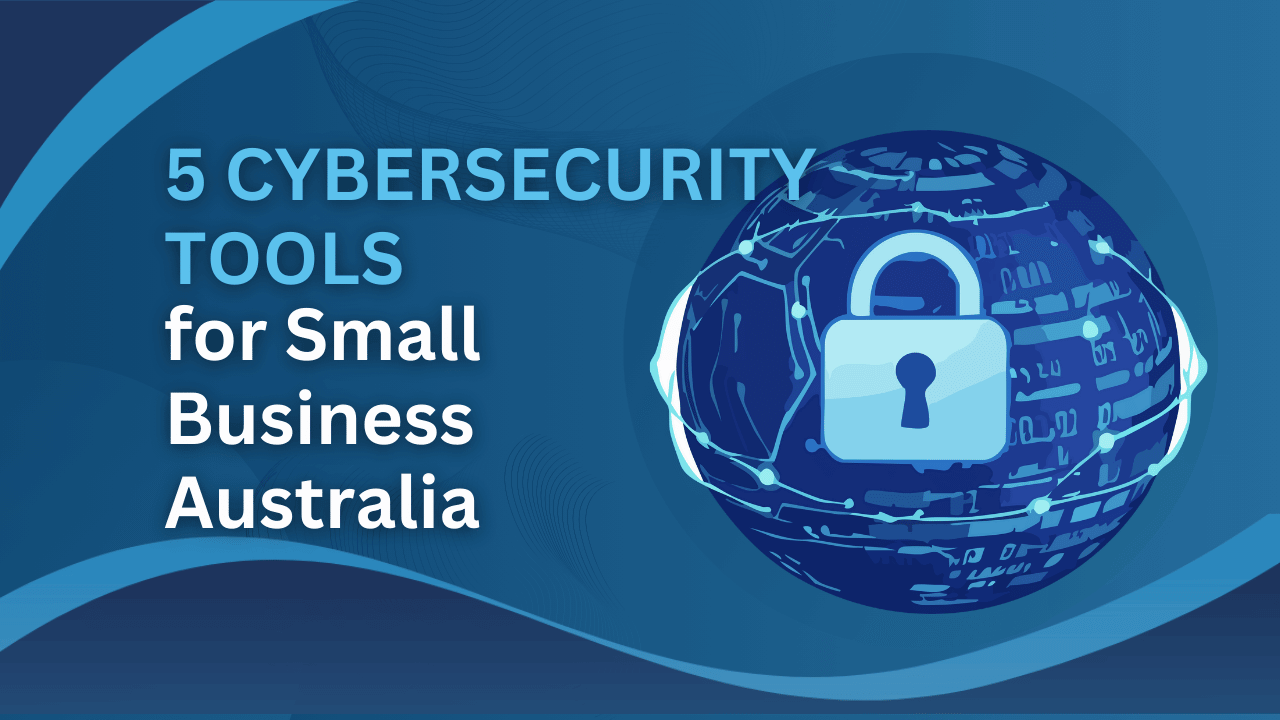To begin with, did you know that Australia is one of the highest generators of e-waste per capita in the world, with each Australian producing around 20 kilograms of e-waste every year? Moreover, this staggering figure highlights just how significant the problem has become, not only for households but also for businesses across the country.
However, while much of the public conversation often focuses on e-waste from homes, businesses remain a major and often overlooked source of the problem. Consequently, the regular cycle of upgrading laptops, servers, printers, and networking equipment means that small and medium-sized businesses generate large volumes of electronic waste, sometimes without a clear plan for responsible disposal.
Therefore, this is where Netcomp Solutions can step in as more than just your IT support provider. Instead, we position ourselves as a trusted partner that helps you manage IT equipment throughout its lifecycle. We also ensure that disposal is secure, sustainable, and compliant with Australian laws. As a result, your business not only stays efficient and protected but also contributes to a cleaner, greener future for Australia.

What Is E-Waste and Why Is It a Problem?
Firstly, let’s keep it simple — e-waste is any discarded electronic device or component that has reached the end of its useful life. Additionally, this term covers everything from small gadgets to heavy IT infrastructure, all of which businesses rely on every day.
Common Examples for Businesses
For example, in a typical Australian workplace, e-waste often includes:
- Laptops and desktops
- Servers and hard drives
- Printers and photocopiers
- Office phones and mobile devices
- Networking equipment such as routers and switches
Moreover, as technology cycles shorten, businesses accumulate outdated gear faster than ever before.
Why E-Waste Matters for Your Business
1. Data Security Risks
- Firstly, old hard drives and servers can still contain sensitive business or customer information.
- Consequently, simply deleting files is not enough to prevent data breaches.
- Finally, the Australian Cyber Security Centre (ACSC) stresses the importance of secure data destruction when decommissioning equipment.
2. Environmental Harm
- Toxic materials such as lead, mercury, and cadmium can leach into soil and water when e-waste is dumped.
- Therefore, irresponsible disposal damages ecosystems, communities, and future generations.
3. Legal and Financial Penalties
- Several states, including Victoria, South Australia and Western Australia, have strict e-waste landfill bans.
- Moreover, non-compliance can lead to fines and reputational damage.
- As a result, businesses must manage e-waste not only for sustainability but also for legal compliance.
Australia’s E-Waste Reality: Laws and the Business Gap

To begin with, the Australian Government has introduced programs to tackle the growing problem of e-waste.
The most notable initiative is the National Television and Computer Recycling Scheme (NTCRS). Under this scheme, households and small businesses can access free recycling services for items such as computers, laptops, printers, and televisions. Moreover, the scheme is designed to keep hazardous components out of landfill and to encourage recycling of valuable materials like copper, plastics, and rare metals.
The Business Gap
Despite the NTCRS’s success, a significant portion of Australia’s e-waste goes unmanaged. The latest data indicates that less than 20% of Australia’s e-waste is properly recycled, with the rest ending up in landfill. This is largely because the NTCRS is not designed for the high-volume, diverse, and sensitive IT assets that large businesses produce. Companies often have a wider range of equipment (servers, networking gear, specialised machinery) and critical data security concerns that standard recycling schemes can’t address.
As a result, businesses, particularly large organisations, must take extra steps to ensure their e-waste is disposed of responsibly and securely. This includes using certified commercial recyclers and secure data destruction services. It also means implementing a comprehensive IT asset disposal (ITAD) plan to manage their environmental and legal obligations.
5 Ways Your Business Can Responsibly Tackle E-Waste
Undoubtedly, responsible e-waste management is a critical part of a modern business’s IT strategy. Here are five key steps your business can take to protect its data, comply with regulations, and support a healthier planet.
1. Strategic IT Asset Management
Instead of waiting for a device to fail, a proactive approach can significantly reduce your e-waste footprint. By tracking the full lifecycle of your IT equipment, you can extend its usability and plan for upgrades more efficiently. Netcomp Solutions provides a comprehensive IT audit and maintenance service. In other words, we help you maintain your devices and plan strategic upgrades that minimise unnecessary waste.
2. Secure Data Destruction & Decommissioning
This is the most critical step for any business. Simply deleting files or reformatting a hard drive isn’t enough. Recoverable data can remain on the device, posing a severe security risk. So you need to ensure data is permanently destroyed.
- Certified Data Wiping: This involves using industry-approved software to overwrite the entire hard drive with random data. As a result, this makes the original information unrecoverable.
- Hard Drive Degaussing: For magnetic storage devices, degaussing uses a powerful magnetic field to instantly scramble the data on the platters. This process renders the drive unusable and the data irretrievable.
- Professional Shredding: The most secure method of physical destruction is mechanical shredding, where a hard drive is broken into tiny pieces by an accredited recycler. This process makes data recovery impossible.
While some businesses attempt DIY physical destruction (like drilling or smashing drives), it’s not a recommended practice. It’s often unsafe, can expose you to toxic materials, and, most importantly, is not 100% effective—data can still be recovered from a partially damaged drive. Netcomp Solutions serves as your expert partner, ensuring permanent data destruction is performed correctly with compliance documentation to prove it.
3. Partner with Accredited Recyclers

Not all recyclers are created equal. To ensure your e-waste is handled responsibly, you should work with accredited providers. In Australia, look for companies certified under rigorous sustainability and data security standards like R2v3 and ISO. Naming reputable examples like Ecycle Solutions, TechCollect, and Shred-X shows you’re working with the best in the industry. Netcomp Solutions only partners with these certified services, guaranteeing that your decommissioned hardware is managed ethically.
4. Embrace the Circular Economy
The best way to manage e-waste is to not create it in the first place. Old but still functional electronics can be given a second life. Consider refurbishing and reusing equipment internally, or donating it to schools, charities, or non-profits. This not only supports a circular economy but also enhances your business’s social responsibility profile.
5. Consider Cloud Migration
Reducing your physical hardware footprint is a forward-thinking way to minimise future e-waste. By migrating your business’s IT infrastructure to the cloud, you can reduce your reliance on on-premise servers and other physical devices. As a result, this reduces the number of hardware upgrades needed over time, lowering your overall e-waste footprint. Netcomp provides strategic guidance on cloud adoption and can manage the migration process for your business.
Be a Part of the Solution
In an era of increasing environmental awareness and stringent data privacy laws, how a business manages its e-waste has a direct impact on its security, reputation, and bottom line. By embracing secure disposal, refurbishment, and strategic IT asset management, you’re not just getting rid of old equipment—you’re making a smart business decision. This forward-thinking approach protects sensitive information from data breaches, helps you avoid potential fines from non-compliance, and aligns your business with the growing movement towards a circular economy.
If your business is upgrading its IT systems or needs a secure and responsible way to dispose of old hardware, don’t leave it to chance. Contact Netcomp Solutions today to get a comprehensive IT asset disposal plan. Our expert team will guide you through the process, ensuring that all your data is destroyed and your e-waste is handled ethically. Together, we help protect both your business and the planet.



